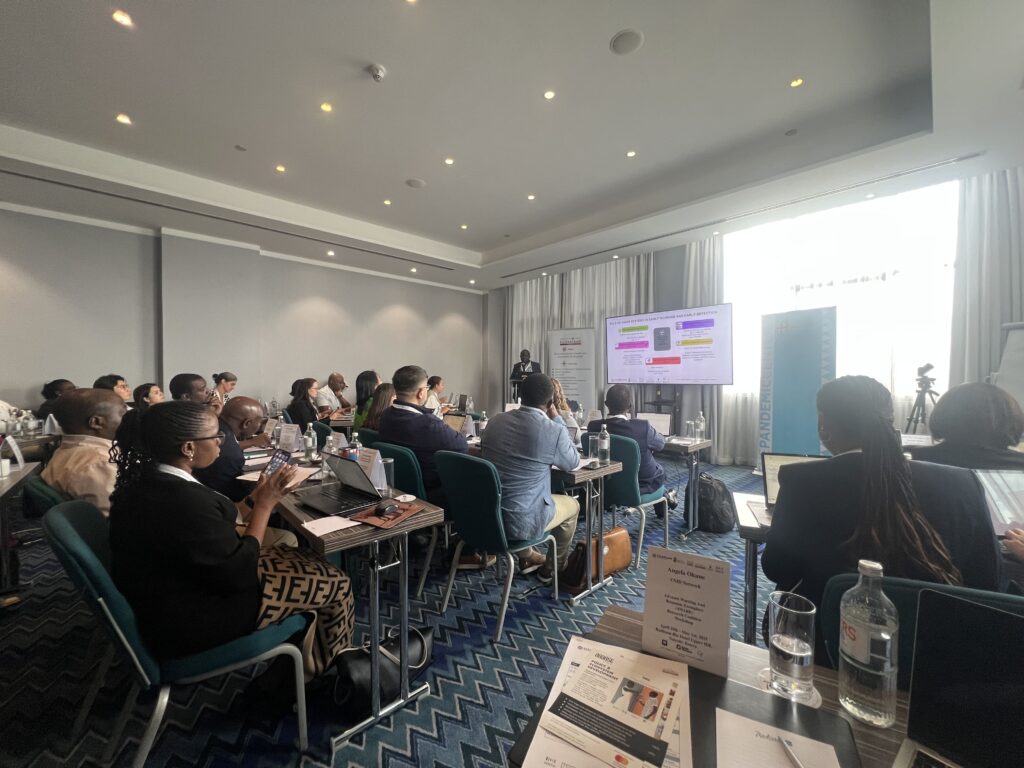Reflections from the AWARE Workshop: Advancing Climate-Sensitive Health Surveillance Across Contexts
From April 29 to May 1, 2025, the AWARE (Advance Warning and Response Exemplars) Workshop in Nairobi brought together researchers, implementers, and funders from Kenya, Brazil, Vietnam, South Africa, the UK and US to explore the complex challenges and opportunities of integrating climate and health data systems for more effective epidemic preparedness. The AWARE project is funded by Wellcome, Gates Foundation and Gates Ventures and as a fellow Wellcome-funded initiative, CSIDNet was invited to participate as a key stakeholder, contributing perspectives from our global community of practice. The workshop showcased a rich diversity of tools, strategies, and local contexts being leveraged globally to advance climate-sensitive infectious disease (CSID) surveillance—and underscored the need for sustained collaboration and political commitment to move from pilot projects to enduring policy solutions.

About the AWARE Project
This gathering marked the first in-person convening of country teams participating in the AWARE project, an initiative led by the Pandemic Center at Brown University’s School of Public Health, in close collaboration with the Gates Foundation, Gates Ventures and Wellcome. Launched in 2023, AWARE seeks to identify and analyze positive outliers in early warning and response systems for CSIDs. By closely examining systems in Brazil, Kenya, South Africa, and Vietnam, the project aims to generate actionable insights into what enables the development, implementation, and sustainability of robust early warning systems—particularly in resource-constrained settings.
Translocal Collaboration
The depth and openness with which each country team engaged made the workshop a pleasure to attend. Teams came with grounded experience—shaped by their countries’ unique histories, infrastructures, and challenges—and were generous in sharing both successes and sticking points. The result was a dynamic exchange where participants could see their own work in contrast and conversation with others, surfacing both shared challenges and context-specific insights.
This spirit of mutual learning and comparative reflection is exactly what CSIDNet aspires to foster: a translocal community of practice, where actors come together from different geographies not to standardize but to understand, adapt, and grow collectively. CSIDNet believes it is through this kind of cross-boundary exchange that meaningful, context-sensitive field building becomes possible.
Key Themes and Learnings
A central theme throughout the sessions was the question of data integration—not only as a technical problem, but as one requiring governance, institutional trust, and strategic investment. Countries like Kenya and Vietnam are working within fragmented ecosystems, where multiple platforms often duplicate efforts, lack interoperability, or face sustainability and access issues. Tools such as EBS Connect in Kenya, which supports early detection of public health threats through community-based event reporting, and D-MOSS in Vietnam, a satellite-based system providing advanced forecasts of dengue outbreaks, offer promising models. However, their long-term viability remains uncertain without stronger institutional anchoring and sustained investment.
Five common challenges echoed across contexts:
- Fragmented Data Ecosystems: Systems operate in silos, undermining the potential for shared situational awareness and cross-sectoral insight.
- Sustainability and Ownership: Heavy reliance on donors or academic institutions creates fragility in the absence of clear pathways to government ownership.
- Technical Capacity Gaps: Recruiting and retaining skilled personnel for integration, modeling, and analysis remains a critical hurdle.
- Data Governance and Trust: Concerns over sovereignty, misuse, and limited data-sharing agreements create institutional hesitancy.
- Lack of Evaluation and Return on Investment (ROI) Metrics: Policymakers need clear metrics and cost-benefit analyses to justify sustained investment.
Despite these challenges, the workshop also surfaced emerging best practices:
- Embed participatory design and co-creation with government actors from the start.
- Establish institutional data-sharing agreements rather than relying on individual relationships.
- Demonstrate local value through subnational implementation and tailored dashboards.
- Streamline reporting through minimum datasets to reduce burden and improve usability.
The Role of CSIDNet
On the final day of the workshop, CSIDNet shared its vision for supporting the work of AWARE and similar initiatives. As a global community connecting researchers, software developers, and practitioners working on CSID tools, CSIDNet is uniquely positioned to contribute in three key areas:
- Knowledge Sharing and Peer Exchange: Through webinars, case study blogs, and virtual convenings, CSIDNet can help surface and amplify learnings from programs like EBS in Kenya or eDengue in Vietnam, facilitating shared reflection and innovation.
- Support for Interoperable and Open Tools: CSIDNet can offer technical support and matchmaking to strengthen tool design, documentation, and long-term usability across contexts.
- Capacity Building and Fellowship Programs: Recognizing capacity constraints as a major bottleneck, CSIDNet aims to support emerging leaders and practitioners through mentorship, placements, and community-based training efforts.
Way Forward
We are grateful to have been part of this thoughtful workshop. The connections formed and insights shared in Nairobi reaffirm our commitment to building a collaborative, practice-driven, and globally connected community. As a connector, supporter, major stakeholder, and advocate for locally grounded, sustainable systems, CSIDNet looks forward to collaborating and supporting such efforts to build advanced warning systems that are both effective and enduring.
View CSIDNet’s presentation slides here.